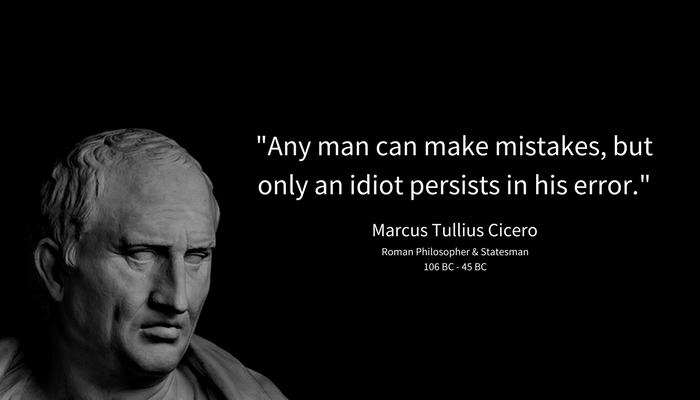“Mistakes are the portals of discovery.” – James Joyce
One of the most important outcomes of our work in developing the 4Cs Mental Toughness framework has been the identification of two independent factors which make up the Challenge element of the framework. It is of key importance for all those engaged in developing (and selecting) people.
Originally identified by Kobasa, Challenge was described as seeing potentially stressful situations as opportunities for personal growth and development, rather than threats or stressors. This indicates that a positive mindset helps individuals to optimise their situations even where there is difficulty or adversity present.
Our research, in collaboration with Prof Peter Clough and Dr John Perry, shows that this rests on two components of “how we think” which we call Risk Orientation and Learning Orientation. In combination, this helps to explain why some learn from mistakes and events whereas others do not.
Risk Orientation describes how we see challenge, change and the unfamiliar. Some will see this as interesting, exciting and in extreme case even thrilling. The Risk Orientated will welcome being faced with new situations and assignments, meeting and working with new people, stretching themselves and pushing back boundaries. At the other end of the scale, there will be the Risk Averse, preferring to avoid new things and experiences that expose them to events outside of their “comfort zone”.
Learning Orientation describes how individuals respond mentally to what happens when they are exposed to challenge, change and new experiences. It is where openness to learning sits. Experiential learning depends greatly on this.
These interplay in interesting ways.
By the nature of risk-taking, those who take risks will experience more setbacks than those who play safe. Some will learn from that. Others will not and may either decide “they will never do” that again or may even repeat their mistakes.
“If you’re not making mistakes, then you’re not doing anything. I’m positive that a doer makes mistakes.” – John Wooden
Curiously, the Risk Averse cannot always avoid being exposed to challenge and change and will also respond differently according to their learning orientation. Some will find it uncomfortable and seek to avoid its repetition. Others can see it as a wake-up call – “I’ve learned something from that even though I didn’t want it to happen”. One can see both types of response in change/redundancy programmes.
And, of course, if we are observant, we can often learn from others in the same way. “I wouldn’t want to do what they did” as opposed to “That was interesting, I think I can see how I might respond better in the same circumstances.
We can summarise the interplay in the form of a matrix:
 Understanding this element of mental toughness/mindset is valuable for all involved in developing people whether they are coaches, trainers, teachers or managers. Development activity will clearly be much more effective where the individual(s) is open to learning and the means by which is achieved.
Understanding this element of mental toughness/mindset is valuable for all involved in developing people whether they are coaches, trainers, teachers or managers. Development activity will clearly be much more effective where the individual(s) is open to learning and the means by which is achieved.
And yet, how is this assessed and dealt with? Where we can understand how an individual is approaching development activity, especially experiential learning, we can introduce approaches which optimise this
One challenge is that this is not a behaviour. It’s an aspect of mindset. We can see how people act. We can rarely see what they are really thinking. We can easily misdiagnose.
A major driver for the development of the Mental Toughness Questionnaire (MTQPlus and MTQ48) is to help users and their clients assess key aspects of “how they think” – their mindset.
We’ll leave the last word to John Cena who neatly summarises why we should all be concerned with optimising our experiences:
“If you don’t learn from your mistakes, then they become regrets.” – John Cena
For more information contact headoffice@aqr.co.uk


